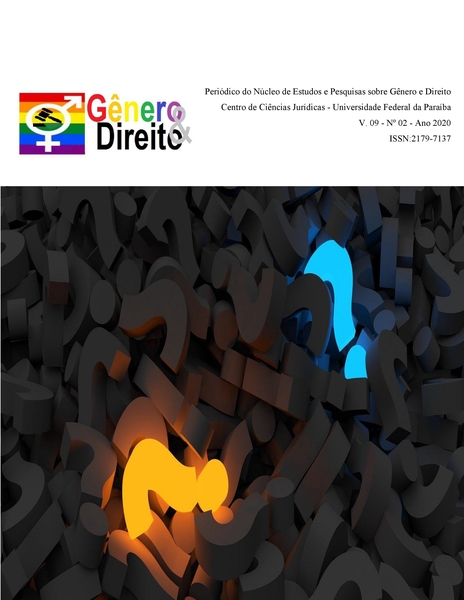EXPLORING AND EXPLAINING THE ECONOMIC POLITICAL RELATIONS BETWEEN IRAN AND THE SOVIET UNION IN THE SECOND PAHLAVI ERA EMPHASIZING THE SYSTEM THEORY
DOI:
https://doi.org/10.22478/ufpb.2179-7137.2020v9n2.50865Palavras-chave:
Political Relations, Economic Relations, Cultural Relations, Iran, Russia, Pahlavi IIResumo
Iran and Russia have common interests, especially in political terms, because of the common borders and territorial neighborhood. This has led to a specific sensitivity to how the two countries are approaching each other. Despite the importance of the two countries' relations, it is observed that in the history of the relations between Iran and Russia, various issues and issues have always been hindered by the close relations between the two countries. The beginning of Iran-Soviet relations during the Second Pahlavi era was accompanied by issues such as World War II and subsequent events. The relations between the two countries were influenced by the factors and system variables of the international system, such as the Cold War, the US-Soviet rivalry, the Second World War and the entry of the Allies into Iran, the deconstruction of the relations between the two post-Cold War superpowers, and so on.The main question of the current research is that the political relations between Iran and Russia influenced by the second Pahlavi period?To answer this question, the hypothesis was that Iran's political economic relations were fluctuating in the second Pahlavi era and influenced by the changing system theory of the international system with the Soviet Union. The findings suggest that various variables such as the structure of the international system and international events, including World War II, the arrival of controversial forces in Iran, the Cold War, the post-Cold War, the US and Soviet policies, and the variables such as the issue of oil Azerbaijan's autonomy, Tudeh's actions in Iran, the issue of fisheries and borders. Also, the policies adopted by Iranian politicians, including negative balance policy, positive nationalism and independent national policy, have affected Iran-Soviet relations. In a general conclusion, from 1320 (1942) to 1357 (1979), the relationship between Iran and Russia has been an upward trend towards peaceful coexistence. But expansion of further relations in the economic, technical and cultural fields has been political rather than political.
Downloads
Referências
Rezaeiyan Ali, Systems Analysis and Design, Tehran, Iran, 1387.
khoshvaght, Mohammad Hossein; Analysis of decision making in foreign policy, Tehran, Office of Political and International Studies, 1996, p.
The Treaty of Our Couple between Iran and Russia Concludes in Moscow on the eighth Hunt of 1299 AH, see: Azghandi, Alireza, History of Political Socio-Political Revolution in Iran (1357-1379) Tehran: Position, 1382.
Azghandi, Alireza, Iran's foreign relations 1357-1320, Tehran, Gomes, 1997.
Azghandi, Alireza, History of Political Socio-Political Transformations of Iran (1320-1357) Tehran: Position, 2003.
Doroudian, Mohammad, Inevitable War, Tehran: Center for War Studies and Research, 2003.
Koolai, Elahe and Ebrahim Mottaghi and Davoud Aghaei, neither Sharafi nor the western, Iran's relations with the Soviet Union and the United States of America, Tehran: Kasimizan, 2007.
Hooshang Mahdavi, Abdolreza, Iran's foreign policy during the Pahlavi era, Tehran: Peykan Publishing House, 2005.
Maraghei, Mohammad Sa'ed, Political Memoirs of Sa'ed Maraghei, p. 181, in an effort by Bagher-e-Aqli, Tehran, Publishing House, 1373.
th Announcement of the Fourteenth Parliamentary Meeting, Meeting 171, Official Gazette 22/9/1324.
Amini, Alireza, History of Foreign Relations of Iran during the Pahlavi Period, Tehran, Contemporary Voice. 2002.
Zoogi, Iraj (1996). Political and Economic Issues of Iranian Oil, Tehran: Pagan, 1996.
Bastenegar, Mohammad, Mosaddeq and Hakimit Mellat, Tehran: Pen, 1381.
Ghabakhshi, Ali and Minoo Afshari Rad, Political Science Culture, Tehran: Chapar, 2004.
Modir shanechi, Mohsen, Iran's Foreign Policy in Economic Political Quarterly, July 13-14, August and August 1998.
Etaat, Jawad, Geopolitical Attractions in Iran, Journal of June 15, 2013, No. 24, Winter, 1996.
Keshvarz, Fereydoun, Political Memories; by Ali Dehbashi, Tehran, AI Publishing, 2000.
Historical Documents Review Center, Iran-Soviet Relations, Tehran, Historical Documents Review Center, 2002.
Torabi Farasani, Soheila (2002) Iran-Soviet Trade Relations and Economic Formation in the Early Pahlavi era, Autumn and Winter, No. 31-30, Scientific Research, Ministry of Science.
Nazem, Hussein (1380) Russian and British in Iran (1900-1914), based on political documents of Britain, France, Germany, Translator of Faramarzpour, Tehran.
Karzan, Lord (2008) Iran and the Question of Iran, translation by Ali Jawar Kalam, Tehran.
Ahmadi, Hamid (2013(“Political Elites and the Question of Ethnicity and Democracy in Iran: A Critical View”, Iran and the Caucasus, Vol. 5, No. 17, 2013,p 91

